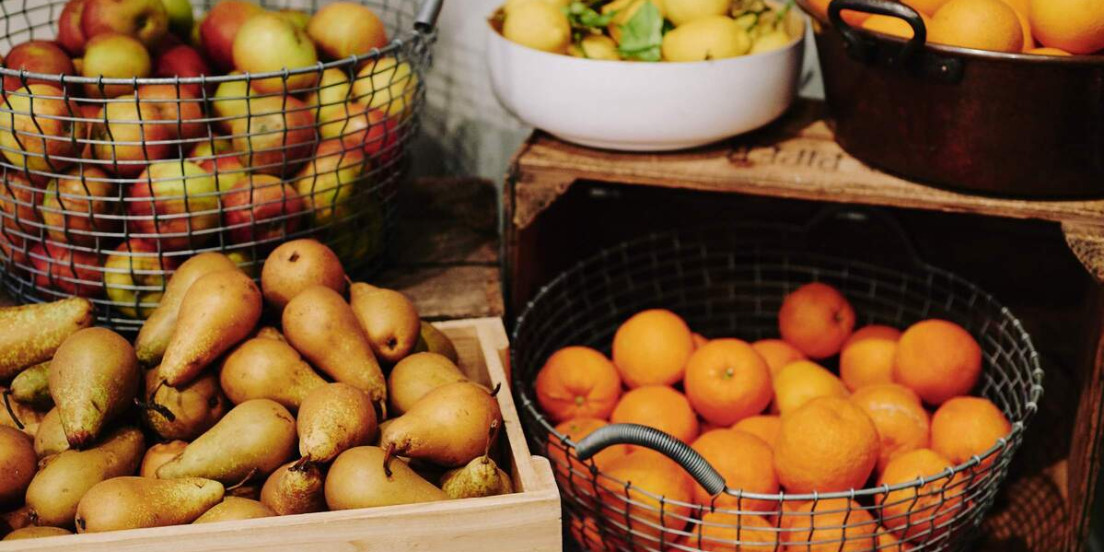Eating with the seasons: autumn dishes to get excited about
03 October 2025
Posted under: Hobbies & interests

Is there anything more disappointing than biting into a pale, flavourless strawberry in the depths of autumn? We've all experienced it - that stark contrast between the watery imposters and the intensely sweet, vibrant berries of summer. That's where the simple pleasure of eating seasonally comes in. Often overlooked in our modern world of year-round availability, paying attention to which fruits and veg are in their prime, and when, is a game-changer not just for delightful taste, but for a whole host of benefits.
Here in the UK, as we embrace the Autumn months, our fields, gardens and allotments are overflowing with the very best of British produce; think crunchy apples, vibrant beetroot, and earthy potatoes. Below we uncover why embracing these seasonal treasures is one of the most rewarding shifts you can make for your plate, your health, and even the planet.
The benefits of eating seasonally
Enhanced flavours
Enhanced flavours is often the first thing people notice when eating seasonally, and for good reason. When you bite into produce that's been picked at its peak, you're experiencing it exactly as nature intended. Additionally, produce picked at its peak ripeness has more flavour and a better texture.
Increased nutritional value
Beyond the flavour, seasonal produce often offers better nutritional value. When fruits and vegetables are harvested at their prime, they've had the optimal conditions to develop a higher concentration of vitamins, minerals, and antioxidants. Produce that's travelled thousands of miles or been stored for extended periods can lose a significant amount of its nutritional value over time. By eating seasonally, you're giving your body the freshest, most nutrient-dense fuel available.
A healthier planet
Choosing seasonal and local produce is a simple yet powerful way to reduce your environmental footprint. Produce that is out of season often has to be flown in from distant countries, or grown in energy-intensive greenhouses. This dramatically increases "food miles": the distance your food travels from farm to fork, which contributes to higher carbon emissions from transportation, refrigeration, and the artificial ripening processes. By opting for what's in season and ideally from nearby farms, you're supporting more sustainable agricultural practices and doing your bit for the planet.
Cost effective
When fruits and vegetables are in season, they're typically more abundant. This higher supply naturally drives down prices, meaning you can often make significant savings on your weekly supermarket shop or at the local farmers' market.
Embracing something new
Eating seasonally can help you get out of a ‘culinary rut’ and try some exciting new recipes. It naturally encourages you to experiment with ingredients you might not usually buy and introduces you to new flavours and dishes.
How to know what is in season?
There are plenty of resources to help you keep up to date with what is in season this autumn. For example, the National Trust has produced this handy list of seasonal produce per calendar month. Similarly, visiting local farmer’s markets will help you find fresh produce for your mealtimes.
Autumn favourites
With the autumn months creeping in, here is a list of just some of the freshest seasonal ingredients to brighten your meal times from September to November.
September
Apples
Autumn-fruiting raspberries
Beetroot
Blueberries
Broccoli
Cabbage
Cauliflower
Carrots
Celery
Chard
Courgettes and summer squash
Fennel
October
Chard
Chillies
Jerusalem artichokes
Kale
Kohl rabi
Leeks
Marrow
Onions and shallots
Pak choi
Parsnips
Pears
November
Apples
Carrots
Cabbages
Cauliflower
Kale
Leeks
Parsnips
Pears
Potatoes
Eating with the seasons has a plethora of benefits, including making things fun! Why not try your hand at growing your own vegetables? If you're a resident of our Highfields, West Byfleet community, you have the perfect opportunity to do so in our onsite allotments!